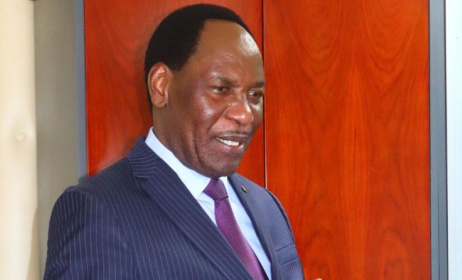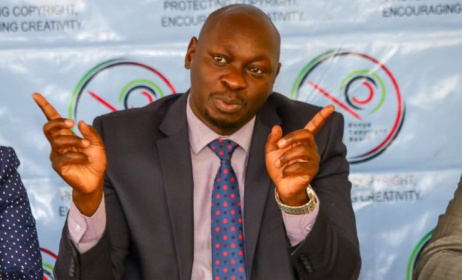Kenyan musicians renew call for overhaul of CMOs
A group of musicians have called for an overhaul of the royalty space in Kenya, as the role of collective management organisations (CMOs) in the country comes into focus once more.
 Kenyan musician Rufftone is leading a group of musicians who want a functional collective management space in their country.
Kenyan musician Rufftone is leading a group of musicians who want a functional collective management space in their country.
During a media briefing in the capital Nairobi on 9 November, veteran and new-generation artists urged the government of President William Ruto, through newly appointed Youth Affairs, Sports and Arts cabinet secretary Ababu Namwamba, to “bring to an end the continued exploitation by the CMOs.”
Led by artists such as Rufftone, Daddy Owen, Musaimo, Esther Wahome, Jemmimah Thiong'o, and many more, the musicians blamed “rogue CMO officials” who they said were lining their pockets with artists’ earnings.
“It has been a rough journey and we look forward to the day where we will be like South Africa,” gospel artist Esther Wahome said. “It hurts to use other countries as examples, yet Kenya has very talented creatives. We are hopeful now that we have a new government and we believe new structures will be put in place so that the money can finally reach the artists.”
Musicians have been embroiled in a decades-long battle with Kenya’s CMOs over issues such as transparency and mismanagement of royalties.
In 2020, KECOBO released the findings of a forensic audit covering the 2017-19 period, in which it exposed systemic inefficiencies at Kenya‘s three licensed CMOs – the Performers Rights Society of Kenya (PRISK), the Music Copyright Society of Kenya (MCSK) and the Kenya Association of Music Producers (KAMP). It found that the CMOs were involved in fraudulent transactions and the diversion of royalties while showing a history of non-compliance, poor corporate governance, and policy breaches, among other issues.
Since the release of the report, the government has tried to instate operational changes at the CMOs. However, these changes have been met with resistance by the CMOs.
“We are aware that the cabinet secretary has already begun consultations on how to streamline the operations of the CMOs within the music industry,” the artists said in a statement. “This has been a long-running challenge for musicians, and until now no sufficient government attention had been realised.”
The group of artists also demanded for a minimum royalty rate of 75% for local music content used by TV, radio and other media, and urged the government to fully enforce anti-piracy laws. They particularly called for a crackdown on websites that stream content illegally.
“This will unlock Ksh92bn (about $756m) per year – Ksh252m per day – and directly create over 50 000 jobs in the creative industry,” they said.
In addition, the artists want KECOBO to align broadcasting tariffs with international standards, and called for the introduction of an 11% monthly licence fee
“An 11% percent royalty on these earnings would yield Ksh2.10bn per year as income for songwriters, composers, publishers, executive producers, musicians, actors and dancers,” they said.
Related content:



































Comments
Log in or register to post comments